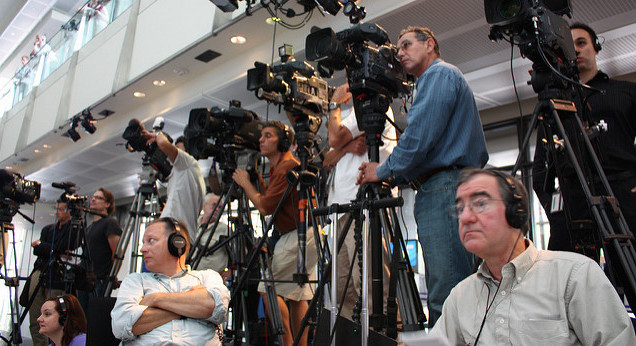Who’s at the Center of Workshop and Who Should Be? (Part 2)
 This is the second in a series of posts on rethinking critique in the workshop. The first post is here. The third is here. The fourth is here.
This is the second in a series of posts on rethinking critique in the workshop. The first post is here. The third is here. The fourth is here.
* * *
As we saw in Part 1, the workshop decenters the voice of the author/workshopee. We also went over various ways in which this may actually be helpful to “finding your voice,” that inhabiting your aesthetic as you discuss works in progress and imagine an ideal finished product might actually help you clarify what you want from fiction and even how you might go about getting it.
To state it more simply: You critique a workshop story through your own perspective as a writer. This is helpful in clarifying your vision of what a story is. Also, since the problems you perceive are problems you perceive, offering suggestions might be helpful to problems you yourself face and to determining your own possible solutions.
I spent a lot of my MFA working out my ideas of what fiction is through talking about other people’s drafts, talking about other people’s submissions to the graduate literary journal, talking and talking about unpublished work both my own and others’. Part of the value of an MFA program is all that exposure to work-in-progress and work-in-submission that is rarer in “real life.” I was constantly working out what made a story fall short and how to “fix” it and what kind of story I wished to read, write, and publish.
But I’ve also had that experience where I’ve gotten a very good workshop suggestion, and then when I went to implement it, the changes didn’t seem to have any energy. That’s a function, at least sometimes, of someone else’s solution being a great solution for them, but not for the piece’s author.
The problem with this isn’t a problem for the person giving the suggestion, of course. It’s a problem for the workshopee. And the problem is that other people’s perfect solutions are convincing and powerful. Suggestions that are obviously no good are more easily dismissed. The author of the workshop story, then, if she takes the suggestion, decenters herself from her own authorship.
That’s what happened to me when I spent two years making my novel someone else’s novel. It didn’t seem like I was making it worse while I was doing it. From the inside, it felt like I was making it better—because I could see that the advice I was giving was good advice but not that it was good advice only for someone else and I couldn’t be that someone else.
I was writing the novel from the workshop’s perspective, and not my own.
Now enter race, gender, culture, sexuality, and so on.
You see how things quickly get more dangerous for the writer. The decentering of the writer that goes on in workshop mirrors the decentering of certain experiences in everyday life. Which is exactly the opposite of what writing is, ideally, for the writer who writes to “find” and express her voice.
So many of the advantages workshop offers break down when a writer is in the workshop minority. Especially when this minority status matches the status in the outside world. And most especially when this fact goes acknowledged—that the typical workshop actively disempowers the singular voice.
This may seem like an exaggeration to some, but—think about the ways in which the workshop mirrors the minority experience in real life. The person who thinks she is in charge of her story is made to listen to other people telling her what her story is or should be.
—
This post will be continued in more parts to come:
In part 3, I’ll talk more about how the advantages of the workshop are difficult to access for the marginalized writer. I’ll also return to how my students reacted to the revision workshop in which they were supposed to only ask questions. It was very difficult for them to adjust, and I’ll try to address why I think that is, and yet why the class still got very positive reviews.
In part 4, I’ll talk about what the greater implications are of putting critique at the center of how we teach writing, and what might be required of us as teachers and students if we wanted to turn the workshop around, and why we might want to do that.
–Photo Flickr/NASA Goddard Space Flight Center
